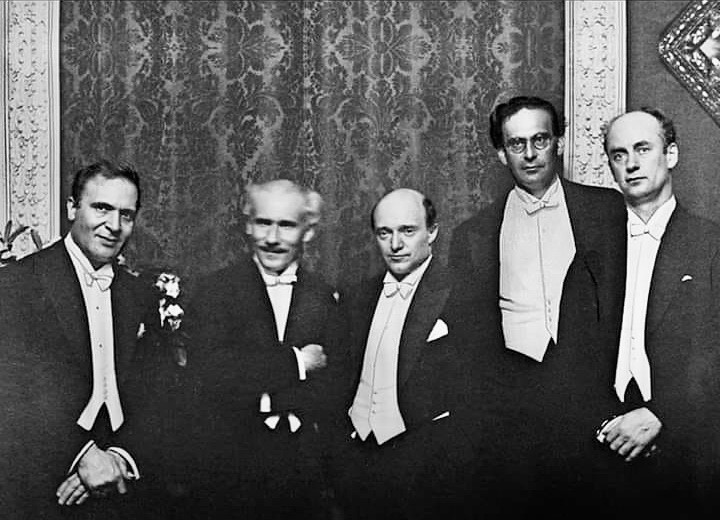Otto Klemperer Biography
Otto Nossan Klemperer (German: [ˌɔto ˈklɛmʁpəʁɐ] ; 14 May 1885 – 6 July 1973) was a German conductor and composer, originally based in Germany, and then the United States, Hungary and finally, Great Britain. He began his career as an opera conductor, but he was later better known as a conductor of symphonic music. A protégé of the composer and conductor Gustav Mahler, from 1907 Klemperer was appointed to a succession of increasingly senior conductorships in opera houses in and around Germany. Between 1929 and 1931 he was director of the Kroll Opera in Berlin, where he presented new works and avant-garde productions of classics. He was from a Jewish family, and the rise of the Nazis caused him to leave Germany in 1933. Shortly afterwards he was appointed chief conductor of the Los Angeles Philharmonic, and guest-conducted other American orchestras, including the San Francisco Symphony, the New York Philharmonic and later the Pittsburgh Symphony, which he reorganised as a permanent ensemble. In the late 1930s Klemperer became ill with a brain tumour. An operation to remove it was successful, but left him lame and partly paralysed on his right side. Throughout his life he had bipolar disorder, and after the operation he went through an intense manic phase of the illness and then a long spell of severe depression. His career was seriously disrupted and did not fully recover until the mid-1940s. He served as the musical director of the Hungarian State Opera in Budapest from 1947 to 1950. Klemperer's later career centred on London. In 1951 he began an association with the Philharmonia Orchestra. By that time better known for his readings of the core German symphonic repertoire than for experimental modern music, he gave concerts and made almost 200 recordings with the Philharmonia and its successor, the New Philharmonia, until his retirement in 1972. His approach to Mozart was not universally liked, being thought of by some as heavy, but he became widely consi...












![Stream & download Mahler: Symphony No. 7 [2011 - Remaster] (2011 - Remaster)](https://is3-ssl.mzstatic.com/image/thumb/Music/v4/f5/fa/30/f5fa3064-8509-98ce-5957-e4a929fade42/5099946372758.jpg/100x100.webp)













































